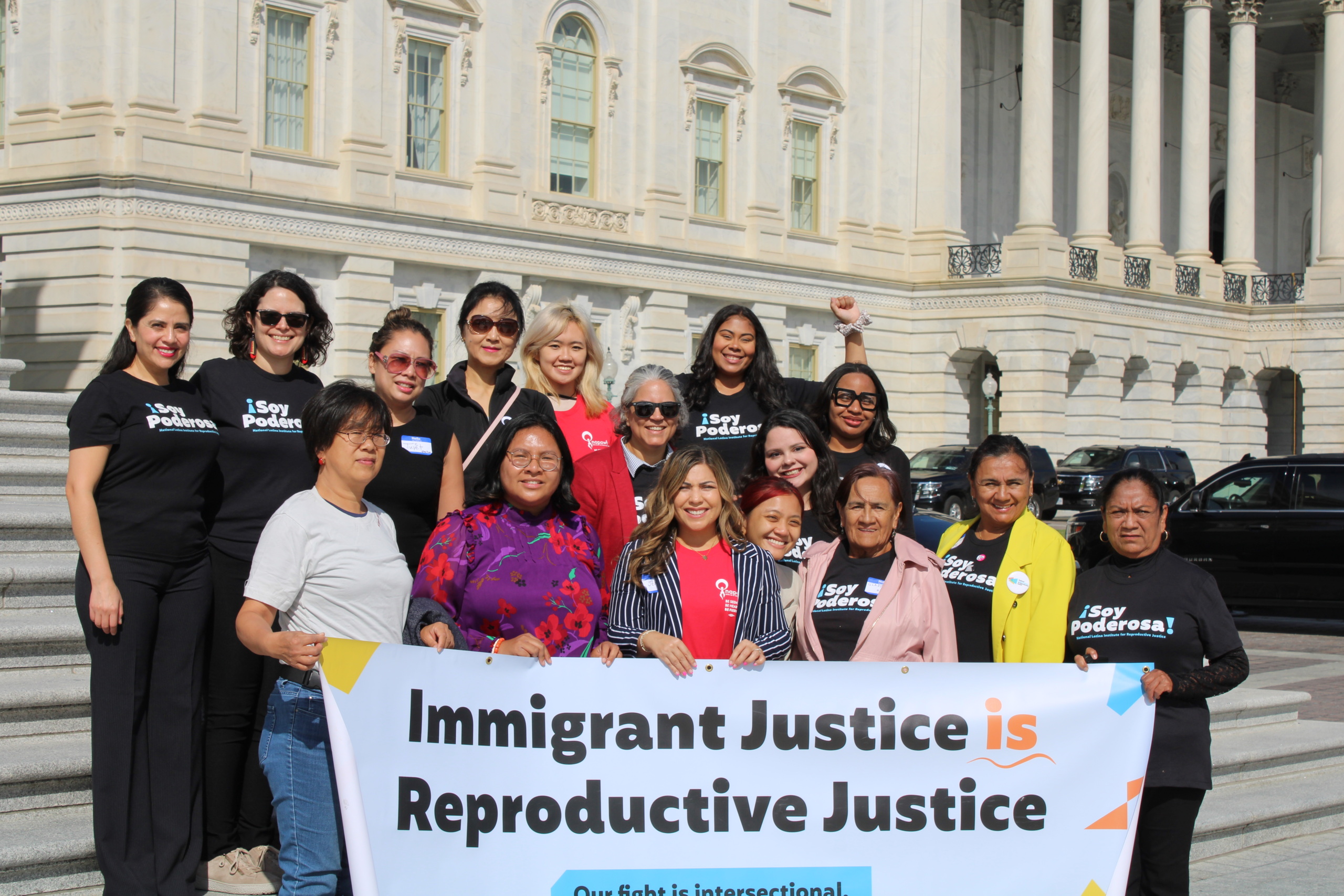The HEAL for Immigrant Families Act

 |
 |
What is the Problem?
Immigrant communities in the United States (U.S.) have long faced systemic barriers to affordable, comprehensive health care due to harmful and discriminatory policies, resulting in persistent disparities in access and outcomes.
Barriers such as the five-year waiting period for Medicaid, the Children’s Health Insurance Program (CHIP), and Medicare, as well as the complete exclusion of undocumented immigrants from federal health programs, have left millions without access to care. These policies undermine the basic human right to the highest attainable standard of health conducive to living a life in dignity.
Of the nearly 151 million people aged 15−49 in the United States, 14.6 million people—almost one in 10—are noncitizen immigrants. A person’s immigration status and income should not determine their health care coverage or broader access to care.
Legal and policy barriers to federal health programs disproportionately harm Black, Indigenous, Latine/a, Asian, Pacific Islander, and immigrant communities and contribute to persistent inequities in the prevention, diagnosis, and treatment of health conditions. These communities often face compounded barriers related to sexual orientation, gender identity, pregnancy or related conditions, disability, language access, and race. In 2019, noncitizens of every race and ethnicity were more likely to be uninsured than their U.S.-born or naturalized counterparts, and one in five (19%) noncitizens reported having no usual source of routine or preventive care.
Now more than ever, federal policymaking must prioritize immigrants’ basic human needs and rights.
What Does the HEAL for Immigrant Families Act Do?
The Health Equity & Access under the Law (HEAL) for Immigrant Families Act of 2025 removes political interference and restores access to health coverage so immigrants in the U.S. can participate in the insurance programs they would otherwise be eligible for, if not for their immigration status or length of stay. By restoring and expanding coverage, the bill promotes healthier families, more equitable health systems, and a stronger economy. Specifically, the bill:
- Restores enrollment in full-benefit Medicaid and CHIP to all lawfully present immigrants who are otherwise eligible. The bill removes the discriminatory legal barriers to health coverage for immigrants imposed by the Personal Responsibility and Work Opportunity and Reconciliation Act (PRWORA). Specifically, the bill eliminates the discriminatory five-year waiting period and restrictive eligibility categories imposed by the Personal Responsibility and Work Opportunity Reconciliation Act (PRWORA) of 1996. This ensures that all individuals with federally authorized presence, including Deferred Action for Childhood Arrivals (DACA) recipients, are eligible for these programs.
- Removes discriminatory Medicare eligibility requirements based on length of U.S. residency for many lawful permanent residents (LPRs). This bill eliminates the five-year continuous residence requirement for LPRs who are not eligible for premium-free Part A coverage, allowing them access to Medicare benefits.
- Codifies access to public and affordable health coverage for DACA recipients and ensures that individuals who gain new forms of immigration relief are not similarly excluded from federally funded health care programs.
- Ends the exclusion of undocumented immigrants from the Affordable Care Act (ACA) Health Insurance Exchanges. The bill removes current restrictions that prevent states from offering Medicaid and CHIP coverage to undocumented individuals who otherwise meet eligibility criteria.
- Creates a State plan option to expand Medicaid and CHIP eligibility to immigrants without lawful presence. This bill would remove restrictions that prevent states from electing to provide Medicaid and CHIP coverage to undocumented immigrants who are otherwise eligible.
Why Should You Support the HEAL for Immigrant Families Act?
-
- Health should not depend on immigration status. Every person deserves to be healthy and to access health care with dignity, regardless of how long they have been in the U.S. or what their immigration status is.
- The current system is fragmented and exclusionary. Many immigrants must navigate a complicated patchwork of coverage options or pay out-of-pocket, particularly if they lack access to a community health center or employer-sponsored insurance.
- Increasing access to care for immigrants prevents larger costs to the system. It can lead to substantial long-term savings by reducing emergency care expenditures, minimizing uncompensated care, and promoting overall public health. Moreover, providing insurance to immigrants costs the health care system less than half the cost for US-born adults.
- New policy threats demand action. H.R. 1 and similar proposals would significantly undermine immigrant access to healthcare by restricting eligibility for premium tax credits under the ACA, limiting access to public coverage options, and imposing penalties on states that use their own funds to provide healthcare to immigrants. These provisions would deepen health inequities and weaken public health outcomes by denying care to communities who are already facing systemic barriers to coverage.
- It’s time for bold and impactful legislation that expands access to the essential care immigrant families need and deserve. The HEAL Act offers that vision.
How can you support the HEAL for Immigrant Families Act?
We urge you to co-sponsor the HEAL for Immigrant Families Act and help ensure that no one is denied healthcare because of where they were born.
To cosponsor, contact:
- House: Jennifer Chan (Jennifer.Chan@mail.house.gov) in Representative Pramila Jayapal’s office
- Senate: Mia Furtado (Mia_Furtado@booker.senate.gov) Gloria Nunez (gloria_nunez@booker.senate.gov) in Senator Cory Booker’s office
For more information, please visit www.napawf.org/heal or reach out to:
- Katherine Olivera, National Latina Institute for Reproductive Justice, at kolivera@latinainstitute.org
- Sydelle Barreto, National Asian Pacific American Women’s Forum, at sbarreto@napawf.org.
Take Action
Tell your Story
The HEAL Act would enable countless im/migrant families to access the healthcare they need. Share your story today about what this legislation would mean to you.
Stay involved in the fight! Sign up to receive emails from the Latina Institute and get up-to-date information on reproductive justice actions and opportunities.
